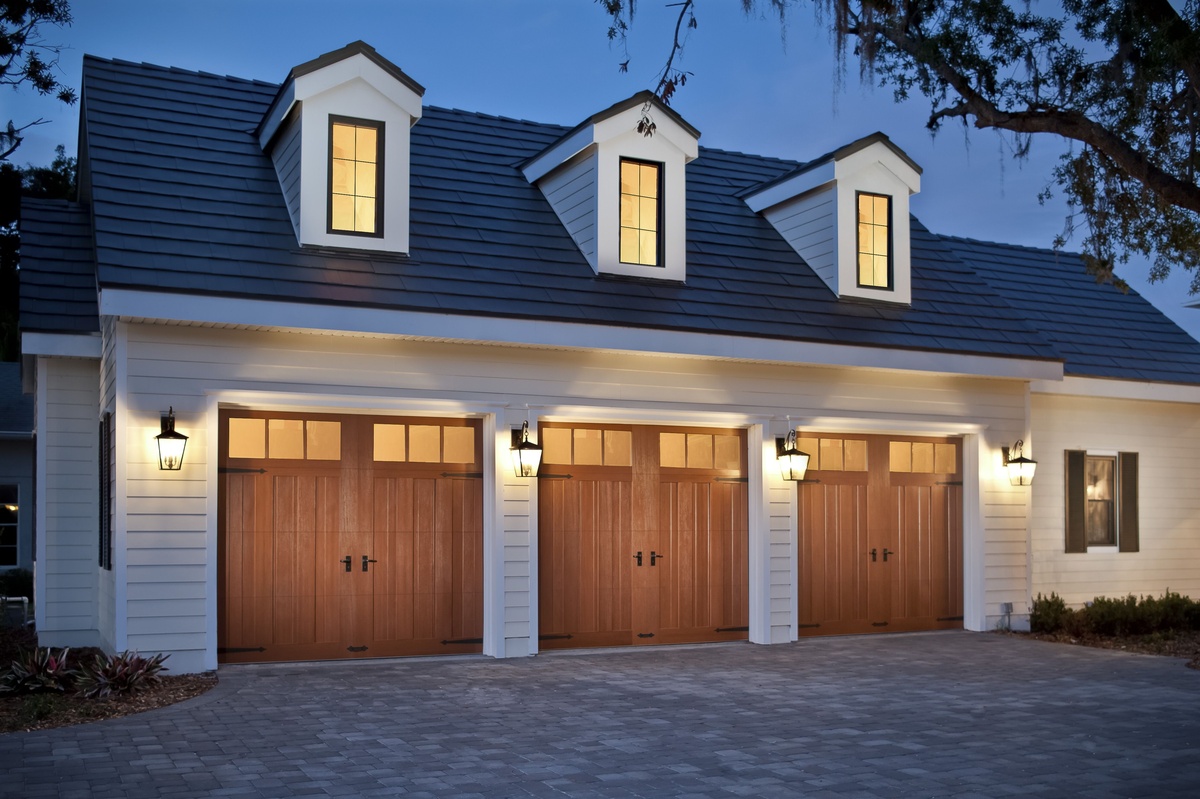

Articles
How To Choose Garage Door
Modified: October 28, 2024
Learn how to choose the perfect garage door with our comprehensive articles. Discover expert tips and advice to make the best decision for your home.
(Many of the links in this article redirect to a specific reviewed product. Your purchase of these products through affiliate links helps to generate commission for Storables.com, at no extra cost. Learn more)
Introduction
Choosing the right garage door is an important decision for homeowners. Not only does it enhance the overall appearance of the house, but it also plays a crucial role in providing safety, security, and convenience. With numerous options available on the market, selecting the perfect garage door can be overwhelming. However, by considering a few key factors, homeowners can make an informed choice that meets their needs and preferences.
In this article, we will explore the various factors to consider when choosing a garage door. From the materials and design options to insulation, security features, maintenance, and installation, we will cover all aspects to help you make the right decision.
Key Takeaways:
- Choosing the perfect garage door involves considering material options, design choices, insulation, security features, maintenance, cost, and professional installation. By evaluating these factors, homeowners can make an informed decision that enhances their home’s aesthetics, security, and energy efficiency.
- Prioritizing factors such as durability, security features, and energy efficiency when choosing a garage door can lead to long-term benefits, including cost savings, peace of mind, and enhanced home value. Professional installation and consultation with experts can ensure the selection of a high-quality garage door that meets specific needs and preferences.
Read more: How To Maintain Garage Door
Factors to Consider when Choosing a Garage Door
When it comes to choosing a garage door, several important factors need to be taken into consideration. Each factor contributes to the overall functionality, aesthetics, and longevity of the garage door. Let’s explore these factors in detail:
- Material Options for Garage Doors: Garage doors are available in a variety of materials, including steel, aluminum, wood, and fiberglass. Each material has its own unique characteristics, such as durability, insulation properties, and maintenance requirements. Consider factors like climate, budget, and personal preferences when selecting the material for your garage door.
- Design and Style Choices: The design and style of the garage door can greatly impact the overall look of your home. There are various options available, including traditional raised panel, contemporary, carriage house, and custom designs. Choose a design that complements the architectural style of your home and reflects your personal taste.
- Insulation and Energy Efficiency: Garage doors with proper insulation can significantly improve energy efficiency and help regulate the temperature inside the garage. Insulated garage doors are particularly beneficial in extreme climates. Look for insulated options with high R-values to minimize heat loss or gain.
- Security Features: Security is a top priority when it comes to garage doors. Consider features such as sturdy hardware, robust locking mechanisms, and advanced security features like rolling code technology. These features ensure the safety and security of your belongings and provide peace of mind.
- Maintenance and Durability: Opt for a garage door that requires minimal maintenance and is built to withstand the test of time. Factors such as material, construction, and finish determine the durability of the garage door. Choose a door that can withstand harsh weather conditions and does not require frequent repairs or repainting.
- Cost Considerations: Garage door prices can vary widely depending on factors such as material, design, insulation, and features. Determine your budget and consider the long-term value of the investment. Remember that investing in a higher-quality door might save you money on repairs and replacements in the future.
- Professional Installation: Proper installation is crucial for the functionality and longevity of the garage door. It is recommended to hire a professional installer who is experienced in garage door installations. They will ensure that the door is installed correctly, guaranteeing optimal performance and safety.
By considering these factors, homeowners can make an informed decision and choose a garage door that meets their needs in terms of aesthetics, security, energy efficiency, and durability. Take your time, do thorough research, and consult with professionals to ensure that you select the perfect garage door for your home.
Material Options for Garage Doors
When it comes to selecting a garage door, one of the first factors to consider is the material. The material not only affects the appearance of the door but also determines its durability, insulation properties, and maintenance requirements. Here are some common material options for garage doors:
- Steel: Steel is one of the most popular choices for garage doors due to its durability and strength. Steel doors are known for their low maintenance requirements and resistance to dents and warping. They are available in a variety of styles and finishes, making them suitable for different architectural designs. Steel doors can also be insulated, providing better energy efficiency and noise reduction.
- Aluminum: Aluminum garage doors are lightweight and corrosion-resistant, making them a suitable choice for coastal areas or humid climates. They offer a sleek and modern look and are available in various styles and finishes. However, aluminum doors may not provide as much insulation as steel or other materials.
- Wood: Wood garage doors have a classic and timeless appeal that can enhance the overall aesthetics of a home. They offer natural beauty and can be customized to match the architectural style. Wood doors are available in different types of wood, such as cedar, mahogany, and hemlock. However, wood requires regular maintenance, such as staining or painting, to protect it from moisture and prolong its lifespan.
- Fiberglass: Fiberglass doors offer a lightweight and low-maintenance option. They can mimic the look of wood without the same level of upkeep. Fiberglass doors are resistant to moisture and are less likely to crack or warp. They are a suitable choice for coastal areas or regions with high humidity. However, fiberglass doors may not provide the same level of insulation as other materials.
Each material has its own advantages and considerations. When choosing the material for your garage door, consider factors such as climate, durability, maintenance requirements, and budget. It’s also important to note that some materials offer better insulation properties, which can help regulate the temperature inside the garage and improve energy efficiency.
Consulting with a garage door professional can provide you with invaluable guidance on selecting the right material for your garage door based on your specific needs and preferences. They can also assess any structural considerations that may affect your material choice, such as the weight-bearing capacity of the garage door opener.
Design and Style Choices
The design and style of your garage door can have a significant impact on the overall aesthetics of your home. It is essential to select a design that complements your home’s architectural style while reflecting your personal taste. Here are some popular design and style choices to consider when choosing a garage door:
- Traditional Raised Panel: The traditional raised panel design is a classic choice that suits a wide range of home styles. It features rectangular panels that are raised and recessed, creating depth and visual interest. This design is versatile and can be customized with various window and color options.
- Contemporary: For a more modern and sleek look, contemporary garage doors are an excellent choice. These doors usually feature clean lines, minimalist design, and often incorporate glass panels or aluminum frames. A contemporary garage door can add a touch of sophistication and elegance to your home’s exterior.
- Carriage House: Carriage house-style garage doors have a charm reminiscent of traditional carriage house doors but with modern functionality. These doors typically feature decorative hardware, such as handles and hinges, and come in a variety of materials like wood, steel, or fiberglass. Carriage house doors can lend a rustic and timeless appeal to your home’s facade.
- Custom Designs: If you want a truly unique and personalized garage door, custom designs offer endless possibilities. Working with a garage door professional or designer, you can create a door that matches your vision and complements the architectural style of your home. Custom options allow you to incorporate specific details, patterns, materials, and finishes that reflect your individual style.
When choosing a design, it’s important to consider the style of your home’s exterior, including the roofline, windows, and other architectural elements. A harmonious and well-coordinated design will enhance the curb appeal and value of your home. Additionally, consider the level of privacy and natural light you desire, as some designs offer more window options than others.
Many garage door manufacturers offer online design tools or visualizers that allow you to preview different design options on your home. This can be a helpful tool in visualizing how the garage door will look and ensuring it fits your desired aesthetic.
Remember, the design and style of your garage door should not only be visually appealing but also functional and practical. Make sure the design you choose aligns with your lifestyle needs, such as ease of operation, security features, and compatibility with your garage door opener.
By carefully considering design and style choices, you can choose a garage door that enhances the beauty and character of your home while providing the functionality you need.
Insulation and Energy Efficiency
Insulation and energy efficiency are crucial factors to consider when choosing a garage door. An insulated garage door can help regulate the temperature inside the garage, improve energy efficiency, and provide additional comfort. Here’s why insulation is important and how it contributes to energy efficiency:
Temperature Regulation: A well-insulated garage door helps to control the temperature inside the garage regardless of external weather conditions. It prevents excessive heat transfer during hot summer months and minimizes heat loss during cold winter months. This is especially important if you use your garage for other purposes besides parking cars, such as a workshop or home gym.
Energy Efficiency: Energy-efficient garage doors with proper insulation can provide significant energy savings. Insulation helps to reduce the heat exchange between the interior of the garage and the outside environment. As a result, it reduces the workload on heating and cooling systems in your home, saving you money on energy bills in the long run.
Noise Reduction: Insulated garage doors also offer the benefit of noise reduction. The insulation material absorbs sound vibrations, preventing noise from entering or leaving the garage. This is especially beneficial if you live in a noisy neighborhood or have a room above the garage.
When considering the insulation options for your garage door, pay attention to the R-value. The R-value measures the insulation’s effectiveness in resisting heat flow. Generally, the higher the R-value, the better the insulation properties of the garage door.
There are two common types of insulation used in garage doors:
- Polyurethane Insulation: Polyurethane is a dense insulation material that provides high thermal efficiency. It fills the entire garage door panel, creating a solid barrier against heat transfer. Polyurethane-insulated doors have higher R-values and offer better overall insulation and energy efficiency.
- Polyethylene Insulation: Polyethylene insulation is a lightweight, less expensive option that is typically used in single-layer garage doors. While it offers some insulation properties, it is not as effective as polyurethane insulation. Polyethylene insulation is a suitable choice if you have budget constraints or if you live in a mild climate where insulation requirements are not as high.
Proper insulation also depends on the construction of the garage door itself. Look for a door with an insulated core and thermal breaks that prevent the transfer of heat or cold through the door’s structure.
To ensure the best insulation performance, it is recommended to consult with a reputable garage door professional who can guide you in choosing the right insulation option based on your climate, budget, and specific needs.
By selecting an insulated and energy-efficient garage door, you can create a more comfortable, environmentally-friendly, and cost-effective space in your garage.
When choosing a garage door, consider the material, insulation, style, and security features. Look for a door that complements your home’s architecture and enhances curb appeal.
Read more: How To Remove A Garage Door
Security Features
When choosing a garage door, security should be a top priority. The garage often serves as a main entry point to the home, making it crucial to select a door that provides robust security features. Here are some key security features to consider:
- Sturdy Hardware: Opt for a garage door that comes with high-quality and durable hardware components, such as hinges, rollers, and tracks. These components should be able to withstand regular wear and tear, ensuring smooth and reliable operation while maintaining the security of the door.
- Robust Locking Mechanisms: Garage doors should be equipped with strong and reliable locking mechanisms to prevent unauthorized access. Look for doors with sturdy deadbolt locks or multi-point locking systems that provide enhanced security.
- Rolling Code Technology: Rolling code technology is an advanced security feature that helps prevent code grabbing by potential intruders. This technology uses a unique code for each use of the remote control, rendering any copied codes useless. It adds an extra layer of security to your garage door system.
- Lighting: Adequate lighting around your garage door can deter potential intruders. Consider installing motion sensor lights or keeping the area well-lit to discourage unauthorized access.
- Security Cameras and Alarms: For enhanced security, consider integrating security cameras and alarms into your garage door system. This allows you to monitor and record any suspicious activity and receive immediate alerts in case of a breach.
- Smart Home Integration: Smart garage door openers and security systems offer additional security features. They allow you to remotely monitor and control your garage door from your smartphone, receive real-time alerts, and provide temporary access codes for services like package delivery or maintenance.
It is important to choose a reputable manufacturer and professional installer when it comes to garage door security. They can guide you in selecting the most secure options and ensure proper installation to maximize the effectiveness of these features.
Regular maintenance of your garage door is also essential for optimal security. Inspect the door and its components regularly for any signs of damage or wear, and promptly address any issues that arise. Additionally, do not neglect the importance of securing the door leading from the garage into your home. Consider adding extra locks or reinforcing the entry point to further enhance home security.
Remember, a secure garage door not only protects your belongings but also provides peace of mind for you and your family. By investing in reliable security features, you can deter potential intruders and ensure the safety of your home.
Maintenance and Durability
When selecting a garage door, it’s important to consider its maintenance requirements and durability. A well-maintained and durable garage door will provide long-lasting performance and save you from frequent repairs and replacements. Here are some factors to consider:
Maintenance Requirements: Different materials and designs may have varying maintenance needs. For example, steel and aluminum doors usually require less maintenance compared to wood doors, which may need regular staining or painting. Consider your available time and willingness to perform maintenance tasks when choosing a garage door material.
Weather Resistance: Garage doors are exposed to the elements year-round, so it’s essential to select a door that can withstand your local weather conditions. Look for doors that are built to resist rust, corrosion, warping, and fading caused by sun exposure. Proper weatherstripping and insulation can also help prevent drafts and moisture intrusion.
Durability: The durability of the garage door depends on factors such as the material, construction, and overall quality. Steel and aluminum doors are known for their durability and resistance to dents and cracks. Wood doors, on the other hand, can be susceptible to moisture damage if not properly maintained. Fiberglass doors offer a balance between durability and low maintenance.
Warranty: Consider the warranty offered by the manufacturer for the garage door. A longer warranty period indicates that the manufacturer has confidence in the product’s durability and quality. Be sure to read and understand the warranty terms and conditions, including any exclusions or limitations.
Regular Maintenance: To extend the lifespan of your garage door and keep it in good working condition, regular maintenance is necessary. Some maintenance tasks include lubricating moving parts, cleaning the door and tracks, inspecting the hardware for signs of wear, and checking the balance and alignment of the door. Following the manufacturer’s recommended maintenance guidelines will help ensure the longevity and performance of the door.
Professional Assistance: If you’re unsure about how to properly maintain your garage door or if you encounter any issues, it’s advised to seek professional assistance. Garage door professionals have the knowledge and expertise to perform maintenance tasks and identify and resolve potential problems before they escalate.
Prioritizing maintenance and selecting a durable garage door will save you time, money, and stress in the long run. Regular upkeep and addressing any issues promptly will help your garage door continue to function properly and maintain its appearance for years to come.
Cost Considerations
When choosing a garage door, it’s important to consider the cost implications. Garage door prices can vary depending on several factors, including the material, design, insulation, size, and additional features. Here are some cost considerations to keep in mind:
Budget: Determine your budget for a new garage door. It’s essential to have a clear understanding of how much you are willing to spend on the door itself, as well as any additional installation or customization costs.
Material: Different materials have different price points. For example, steel doors are typically more affordable compared to wood doors. Aluminum and fiberglass doors can also offer cost-effective alternatives. Consider the pros and cons of each material and choose one that fits within your budget.
Design and Customization: The design and customization options you choose can also impact the overall cost. Custom designs, special finishes, decorative hardware, and windows tend to increase the price of the garage door. Consider your budget and prioritize features and design elements that are most important to you.
Insulation: Insulated garage doors tend to be slightly more expensive than non-insulated doors. However, they offer benefits such as energy efficiency and noise reduction. Consider the climate in which you live and the long-term energy savings that an insulated door can provide.
Additional Features: Garage doors can come with additional features that enhance functionality and convenience. These features, such as smart home integration or advanced security systems, may increase the overall cost. Assess whether these features are essential for you or if you can opt for a more basic model to fit your budget.
Long-Term Value: While upfront costs are a significant consideration, it’s important to evaluate the long-term value of the investment. A higher-quality door may have a higher initial cost but could save you money on repairs and replacements in the future. Consider the durability, maintenance requirements, and warranty offered by the manufacturer when assessing long-term value.
Installation Costs: In addition to the cost of the door itself, remember to factor in installation costs. Professional installation ensures that the door is properly installed, maximizing its performance and longevity. Get quotes from multiple installers to compare prices, but also consider their expertise and reputation in the industry.
While it’s important to consider your budget, avoid compromising on quality or security features solely to save money. A garage door is a long-term investment that contributes to the safety, security, and visual appeal of your home. It’s worth finding the right balance between cost and quality to ensure that you make a wise and satisfactory purchase decision.
Professional Installation
When it comes to installing a new garage door, professional installation is highly recommended. While it may be tempting to attempt a DIY installation to save money, there are several reasons why relying on the expertise of a professional installer is beneficial:
Experience and Knowledge: Garage door professionals have extensive experience and knowledge in installing a wide range of garage doors. They understand the intricacies of different door types, materials, and hardware components. Their expertise ensures that the installation is done correctly and efficiently.
Proper Tools and Equipment: Professional installers have the necessary tools and equipment to handle the installation process effectively. This includes equipment to accurately measure and level the door, as well as safely lift and position heavy doors.
Safety: Garage door installation can be complex and potentially dangerous. Garage doors are heavy and can cause serious injuries if mishandled during installation. Professionals are trained in proper safety protocols to minimize any hazards during installation, ensuring the safety of both themselves and your property.
Warranty Protection: Many manufacturers require professional installation to maintain the validity of the warranty. By choosing professional installation, you ensure that the installation meets the manufacturer’s specifications, protecting your warranty coverage in case of any future issues.
Proper Fit and Functionality: A proper installation is crucial for the optimal functioning of your garage door. Professional installers have the expertise to properly align the door, adjust the spring tension, and ensure smooth and reliable operation. This ensures that your garage door opens, closes, and locks correctly.
Time and Convenience: Installing a garage door can be a time-consuming task, especially if you’re not familiar with the process. Hiring a professional installer allows you to save time and avoid the hassle of figuring out complex instructions and troubleshooting any installation issues.
Post-Installation Support: Professional installers can provide additional support and guidance after the installation is complete. They can answer any questions you have about operating and maintaining your garage door, ensuring that you get the most out of your investment.
When selecting a professional installer, choose a reputable company with a track record of reliable and quality installations. Read reviews, seek recommendations from trusted sources, and request quotes from multiple installers to compare prices and services.
By opting for professional installation, you can have peace of mind knowing that your garage door is installed properly, functions optimally, and provides the safety and security that you and your family deserve.
Read more: How To Make A Garage Door
Conclusion
Choosing the right garage door is a significant decision that can greatly impact your home’s aesthetics, security, energy efficiency, and overall functionality. By considering various factors and making informed choices, you can select a garage door that meets your needs and preferences. Here’s a recap of the key factors discussed:
- Material Options: Choose a material that suits your climate, budget, and maintenance preferences, such as steel, aluminum, wood, or fiberglass.
- Design and Style Choices: Select a design that complements your home’s architectural style and reflects your personal taste, whether it’s traditional raised panel, contemporary, carriage house, or a custom design.
- Insulation and Energy Efficiency: Prioritize insulation to regulate the temperature inside the garage and improve energy efficiency. Consider the R-value and the type of insulation used, such as polyurethane or polyethylene insulation.
- Security Features: Ensure that your garage door has sturdy hardware, robust locking mechanisms, rolling code technology, and additional security features to protect your home and belongings.
- Maintenance and Durability: Assess the maintenance requirements and durability of the door material, considering factors like weather resistance, warranty, and regular upkeep to extend the door’s lifespan.
- Cost Considerations: Set a budget and consider the costs associated with the material, design, insulation, additional features, and installation. Balance upfront costs with long-term value and quality.
- Professional Installation: Opt for professional installation to benefit from their knowledge, experience, proper tools, safety protocols, warranty protection, and expertise in achieving a proper fit and functionality of the door.
By carefully evaluating these factors and making informed decisions, you can find the perfect garage door that enhances the visual appeal of your home, ensures security, improves energy efficiency, and provides long-lasting functionality. Remember to consult with reputable garage door professionals, compare options, and seek recommendations to make the best choice for your specific needs.
A well-chosen and properly installed garage door can not only enhance the curb appeal of your home but also provide safety, convenience, and peace of mind for you and your family for years to come. So take your time, make the right decisions, and enjoy the benefits of a high-quality garage door that meets all your requirements.
Frequently Asked Questions about How To Choose Garage Door
Was this page helpful?
At Storables.com, we guarantee accurate and reliable information. Our content, validated by Expert Board Contributors, is crafted following stringent Editorial Policies. We're committed to providing you with well-researched, expert-backed insights for all your informational needs.
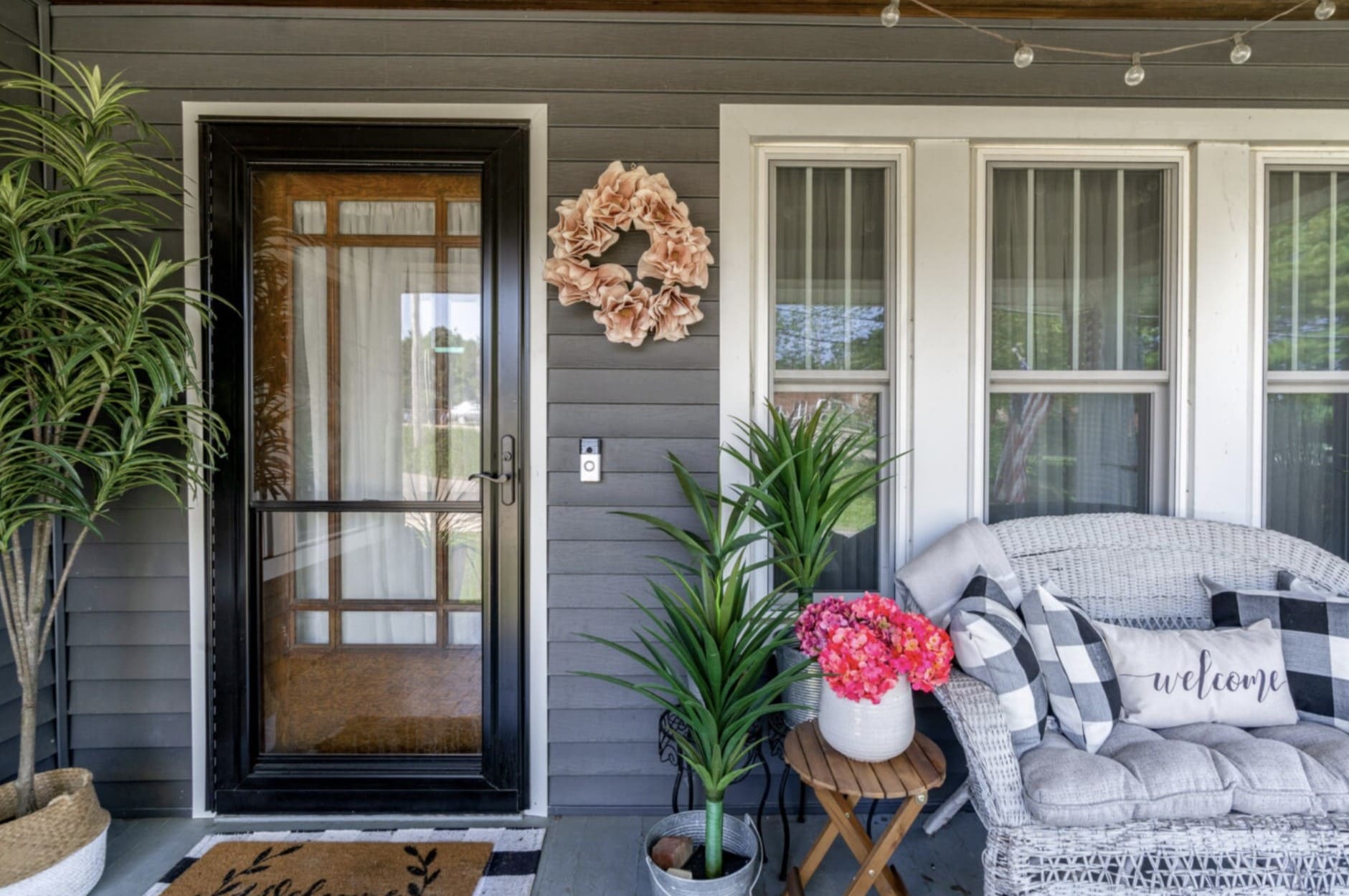
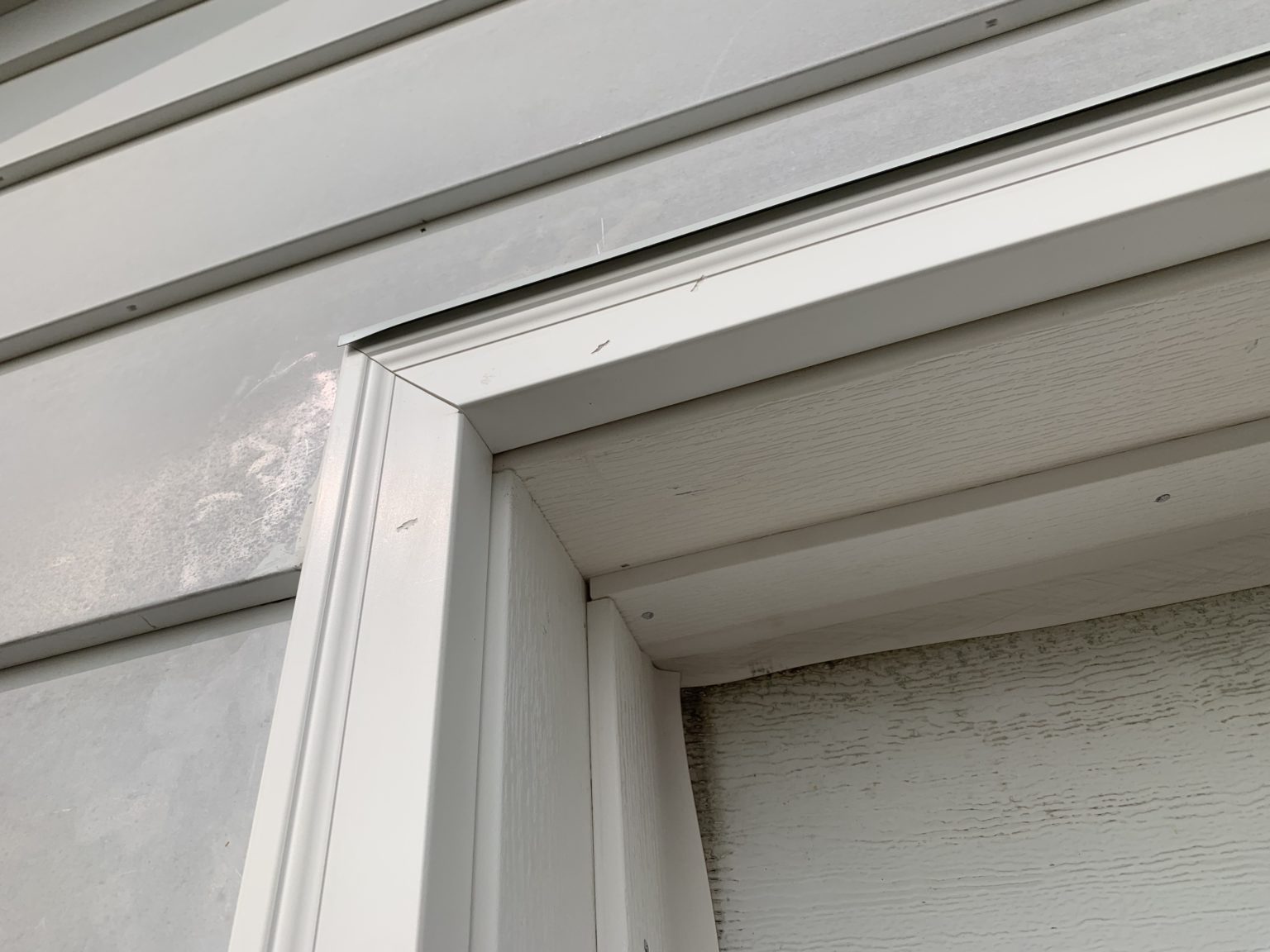
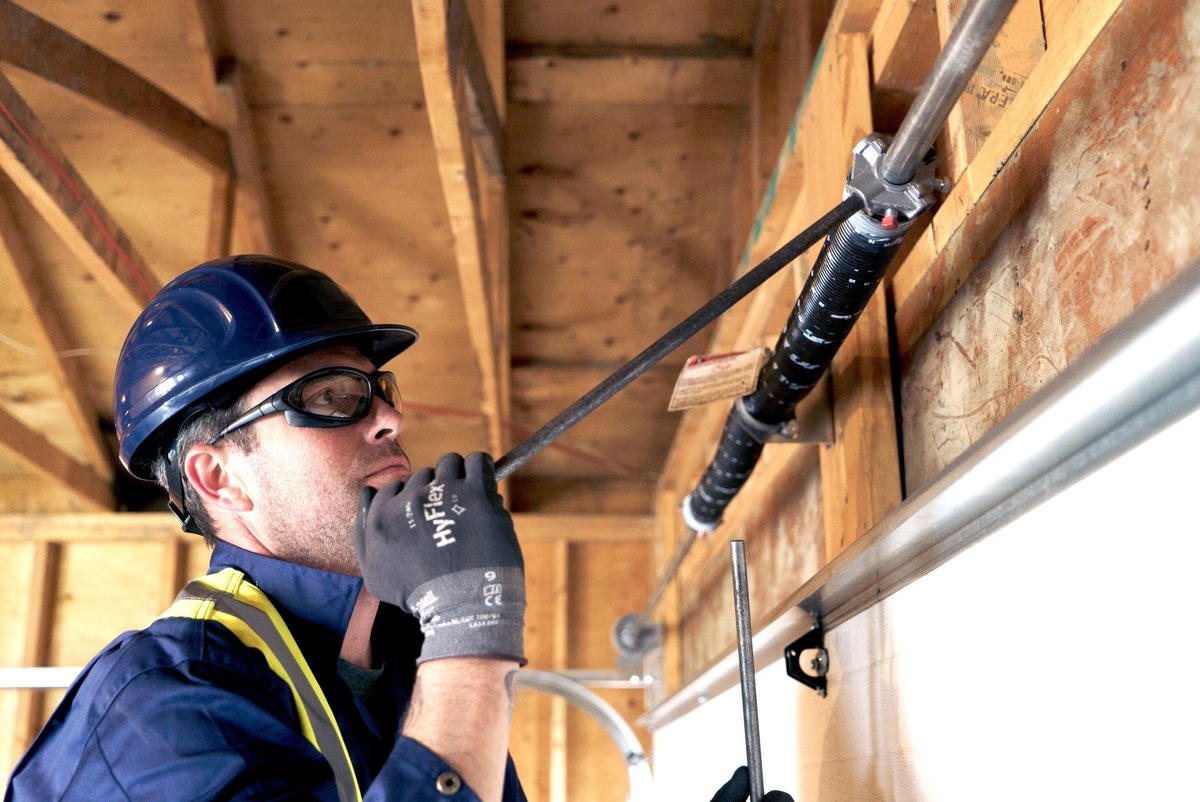
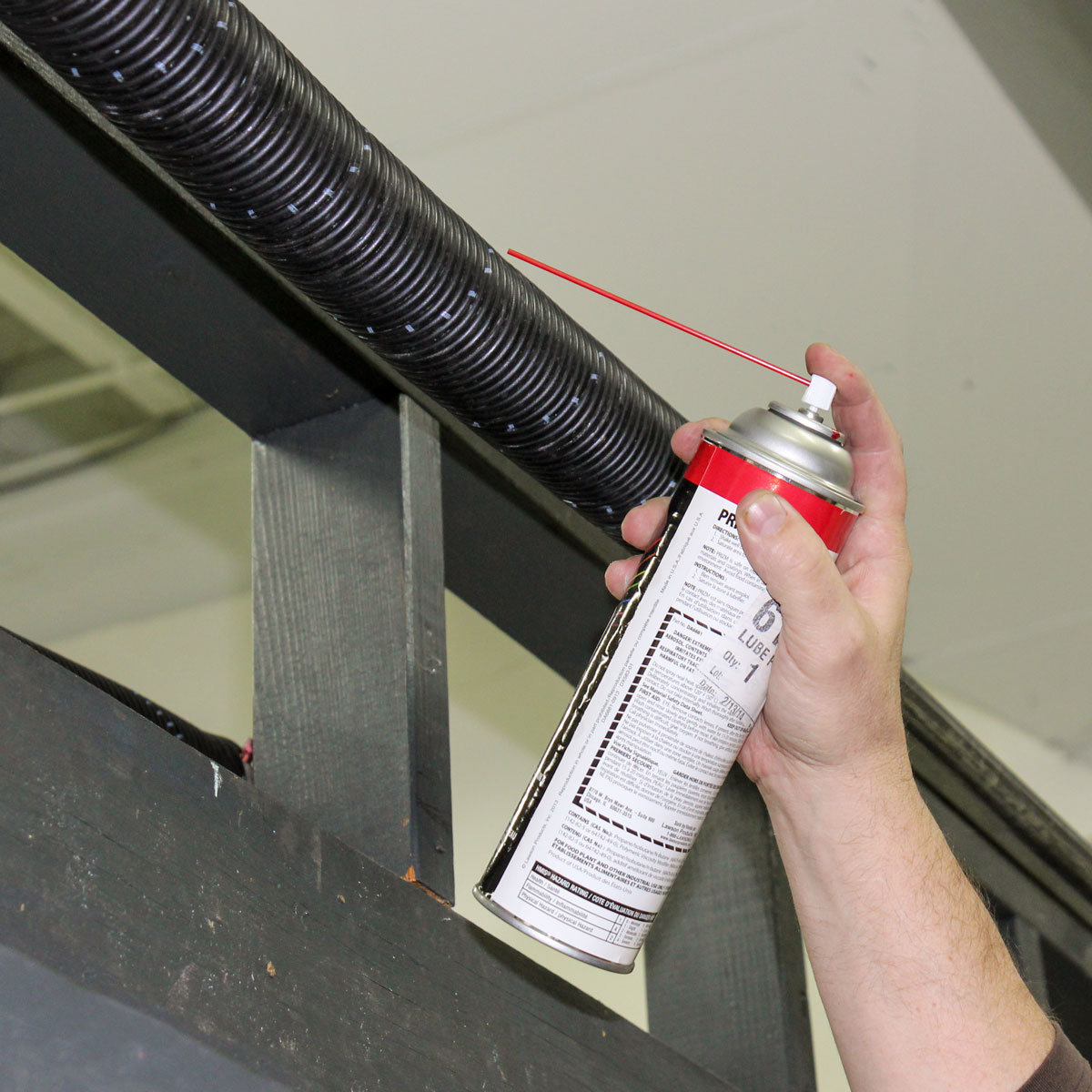
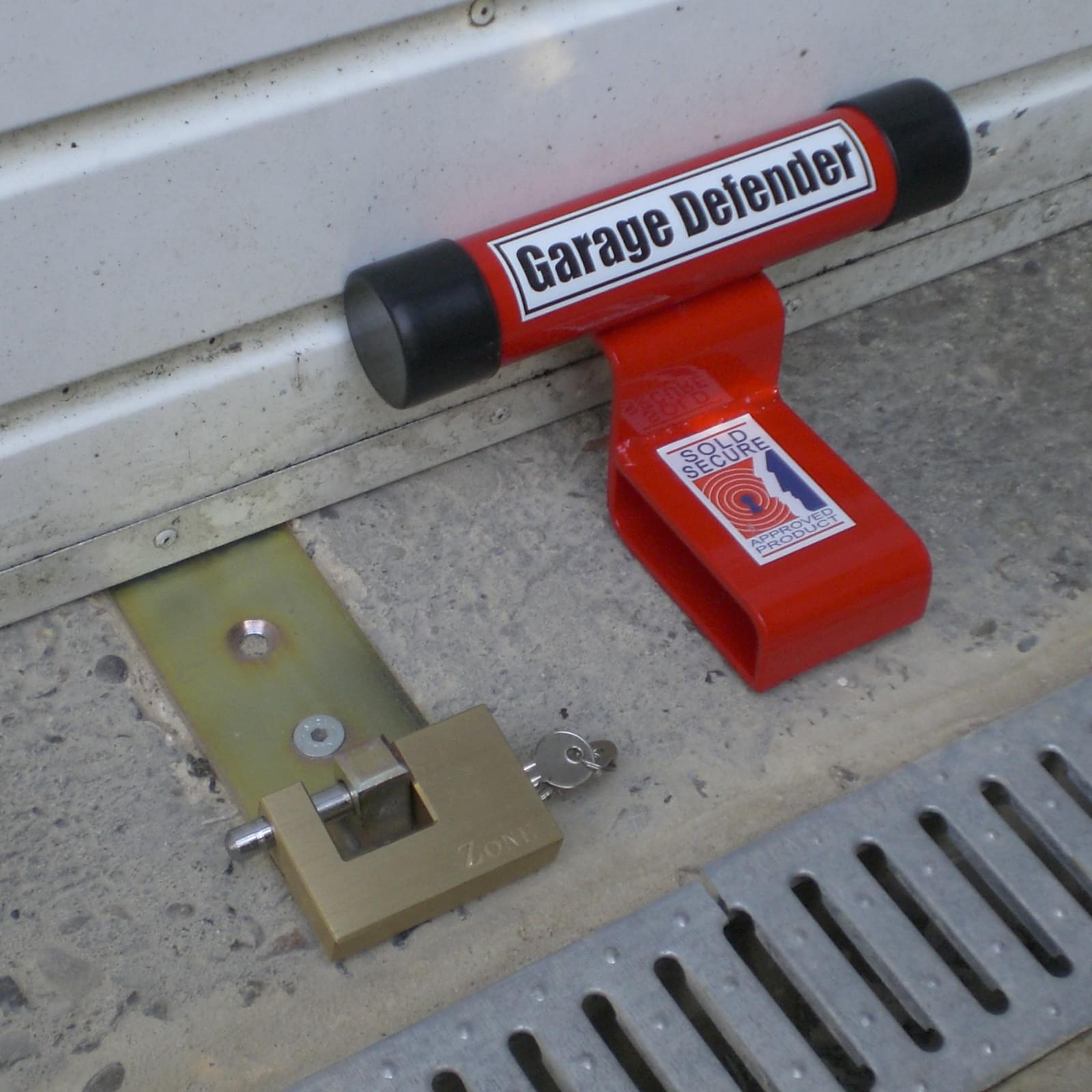
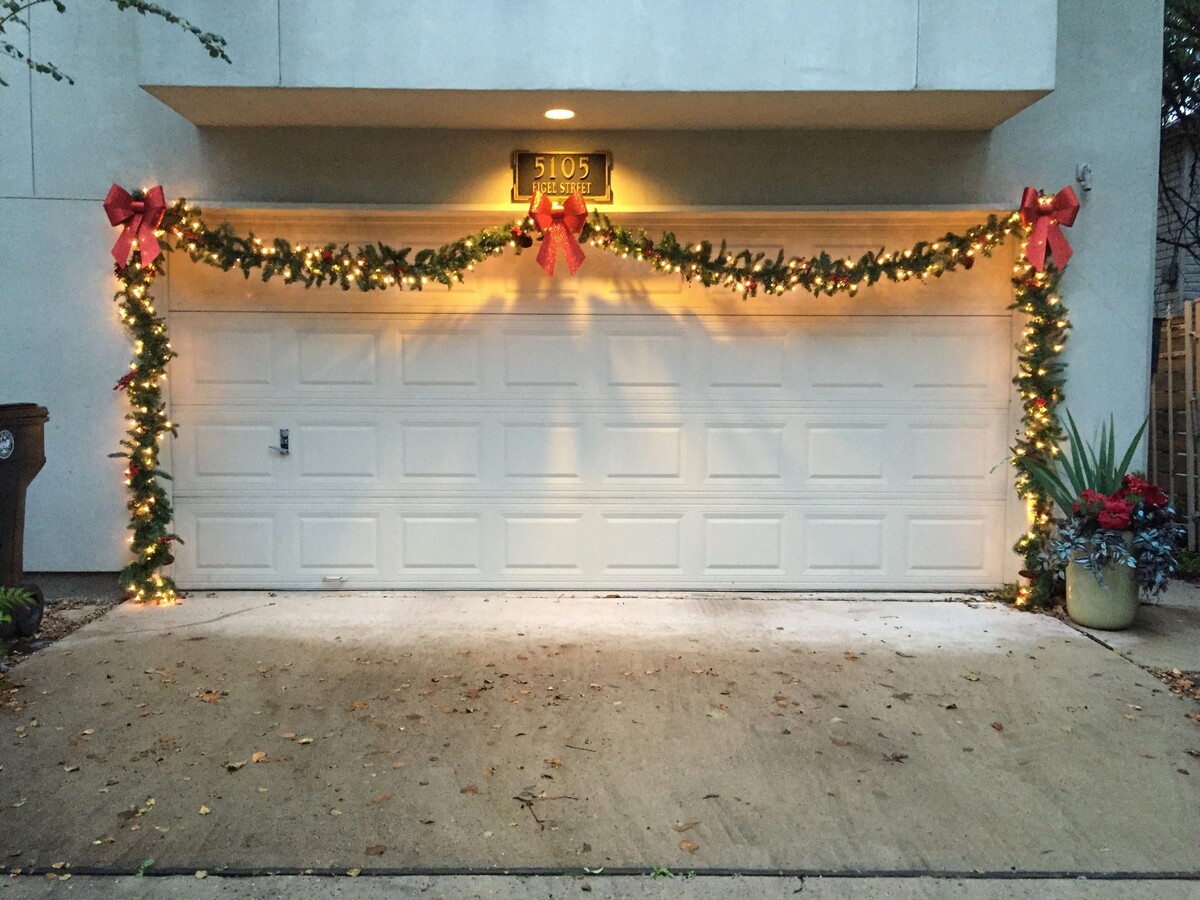
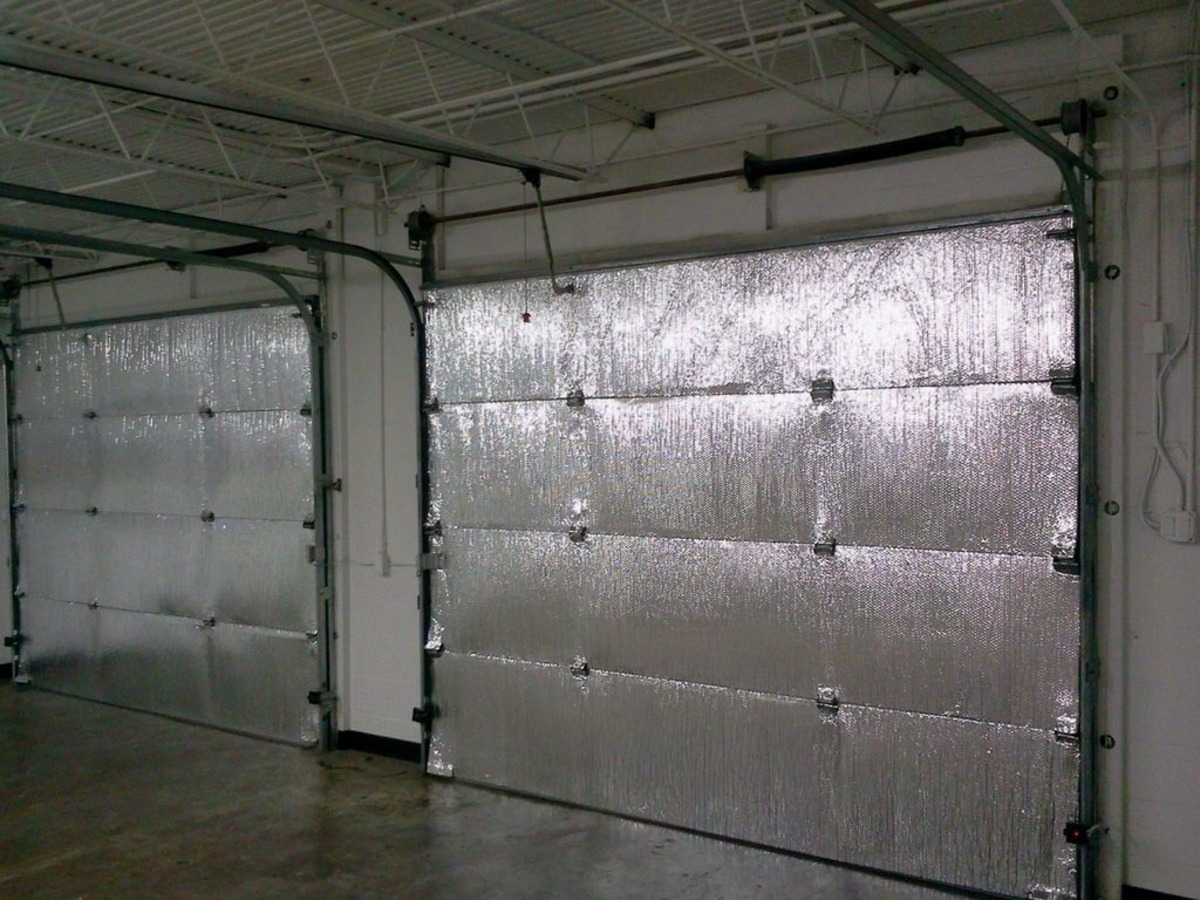
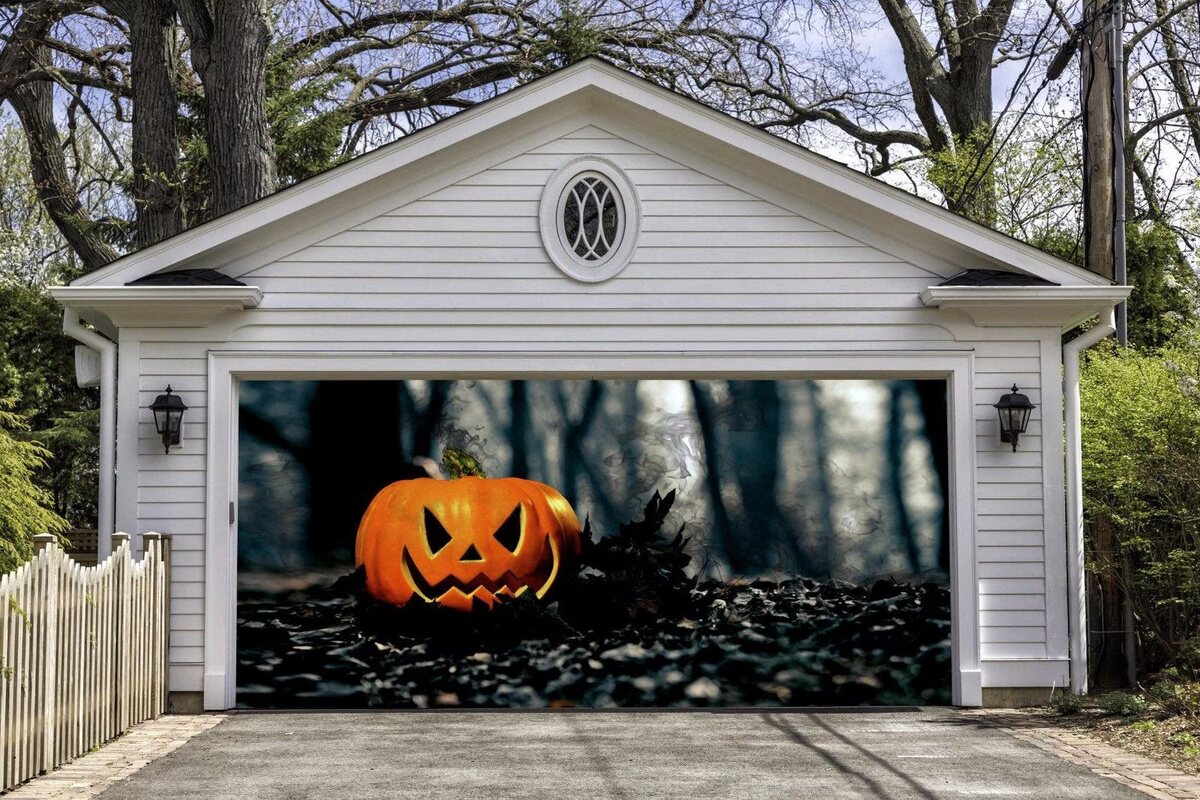
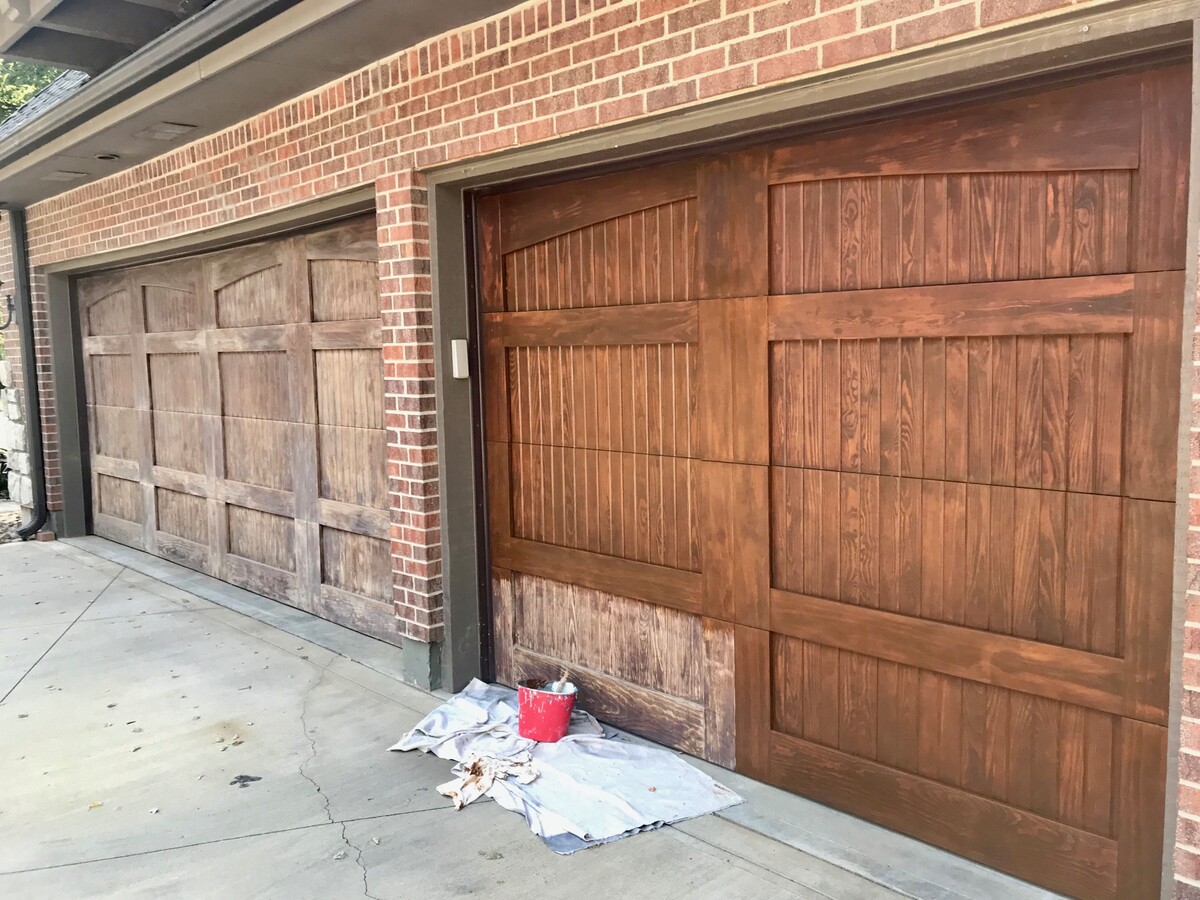
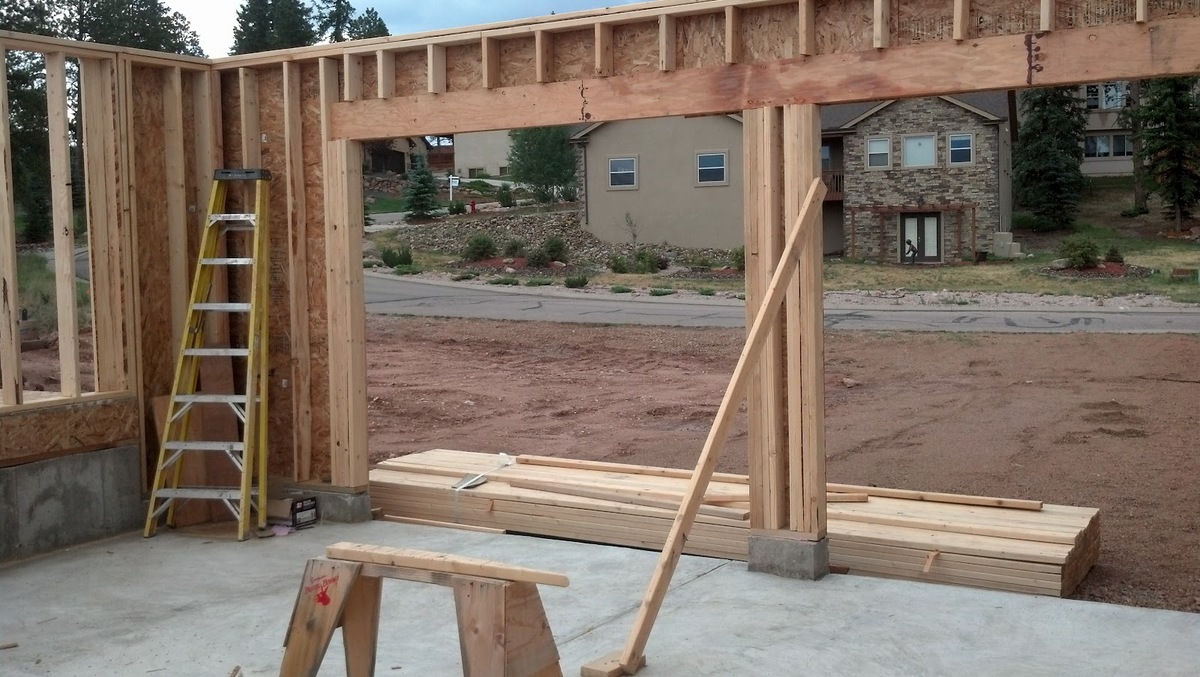
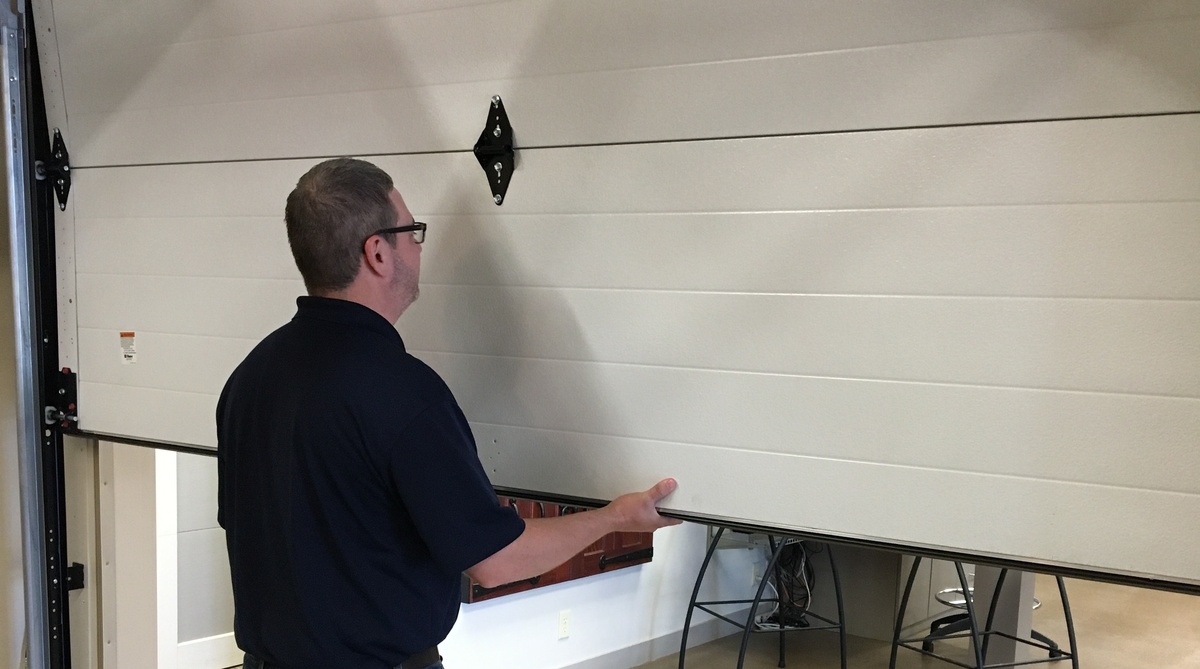
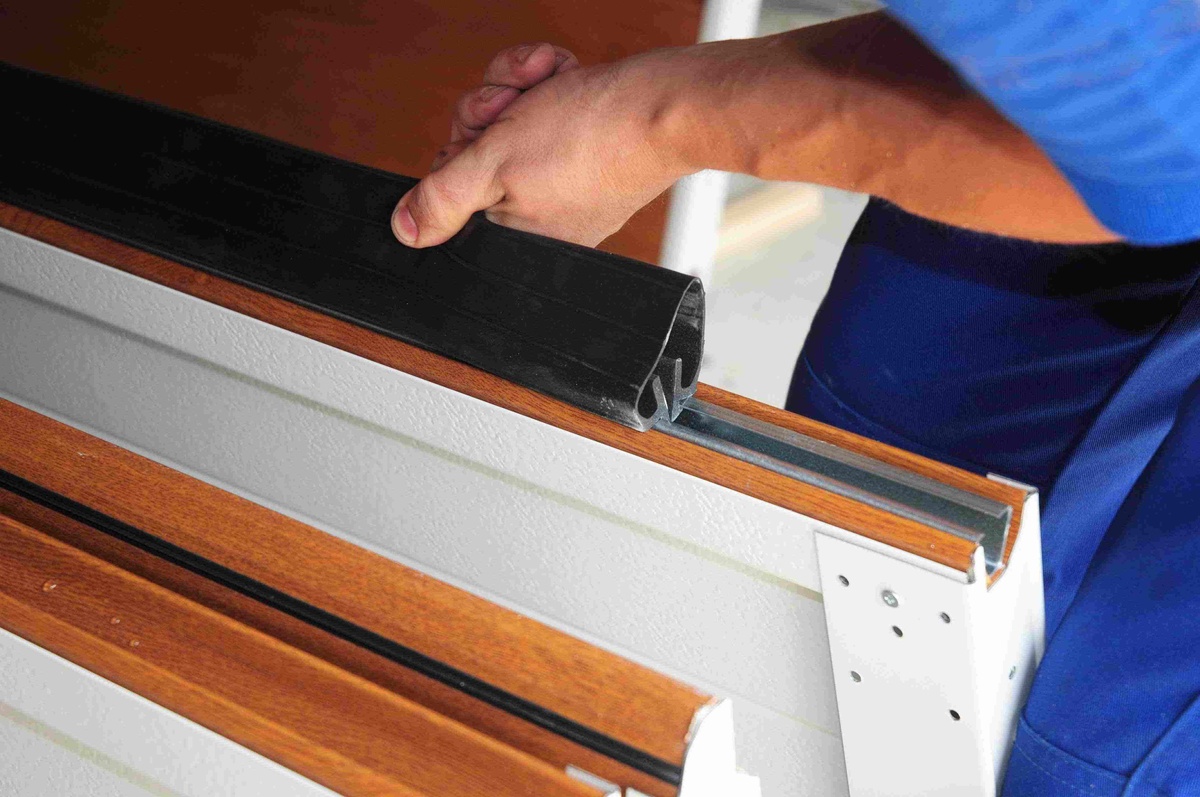
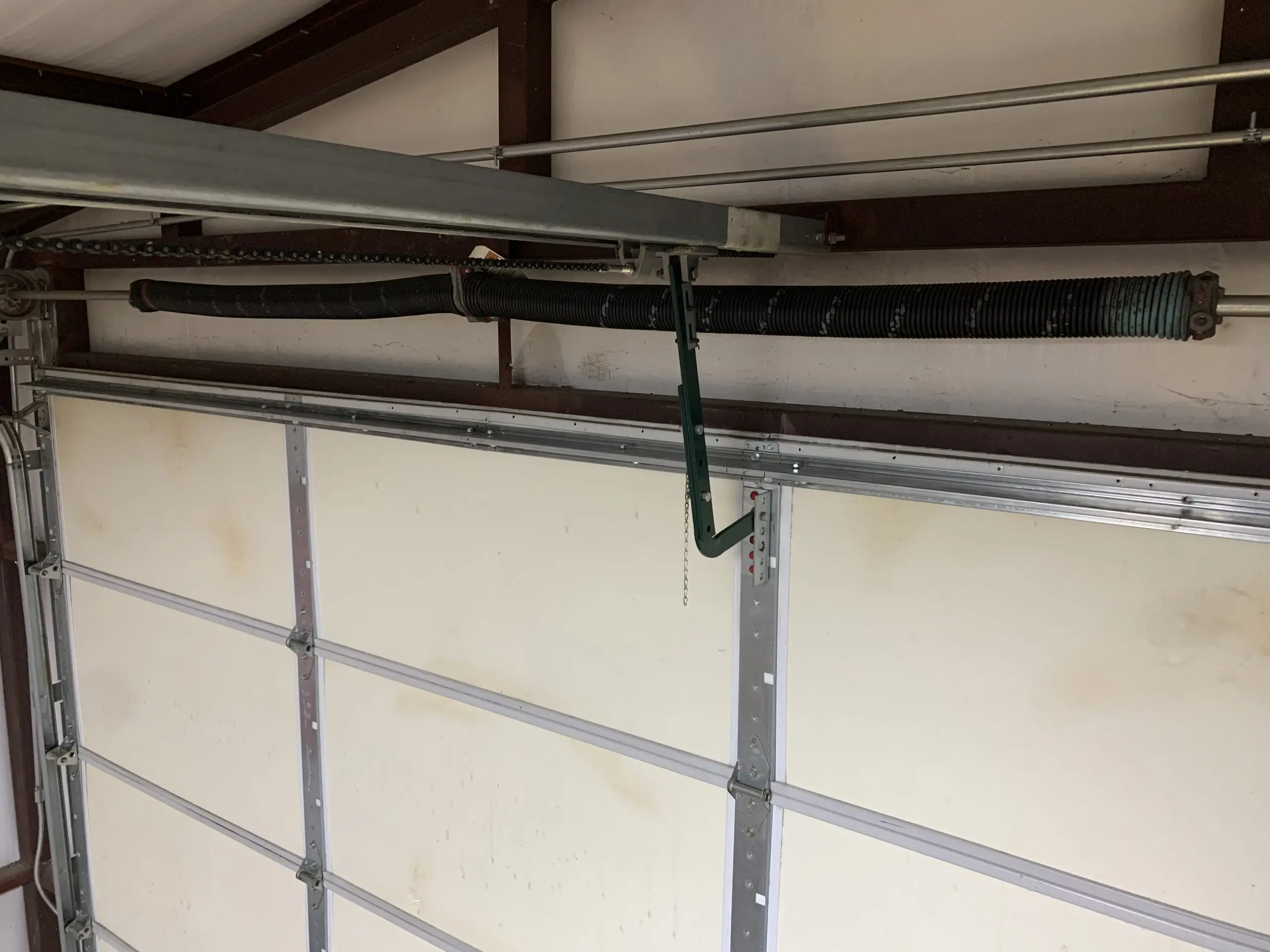

0 thoughts on “How To Choose Garage Door”